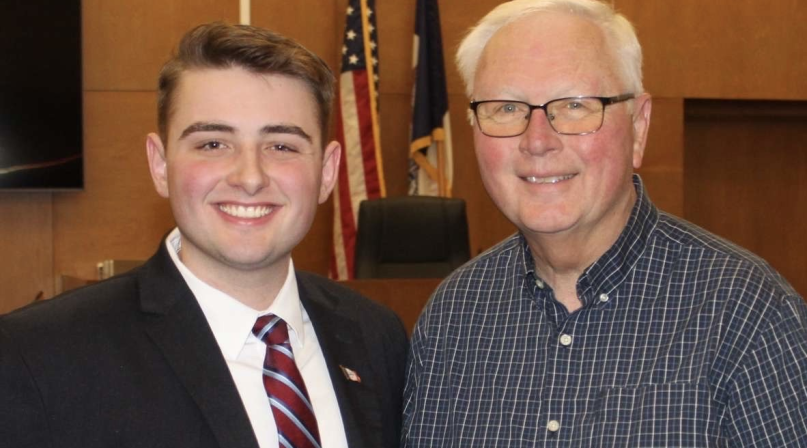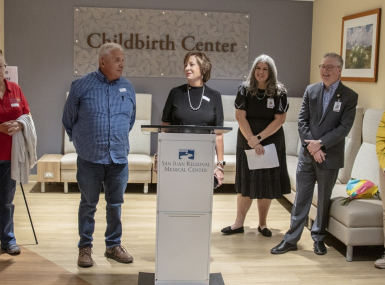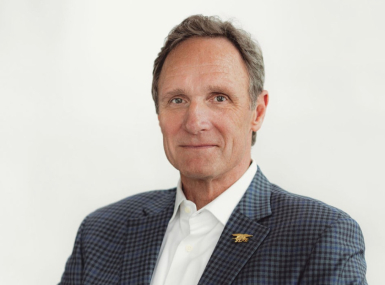County government attracts a new generation

The first time Joe Burgess and Jack Sayers stepped foot in a voting booth, they cast a ballot for themselves. Both 18 at the time, they weren’t voting in a student council election or for prom king, but for spots on their respective county boards.
Burgess and Sayers, who are now both rising college sophomores, are in many respects just like any other teenagers. Sayers likes to play golf and go camping with his friends and you can find Burgess on the soccer intramural field or playing video games (his most recent victory was in “Donkey Kong Country”) — but they know a lot more about zoning and taxes than the average teenager.
“I think my age was probably the biggest thing working against me in the election, but at the same time, it was one of my strongest points,” Sayers said. “Once you are an elected official, it’s very hard not to become, not necessarily complacent, but used to the status quo, used to how things have been.
“When you get somebody in who’s young, who’s just elected, they’re really able to raise some questions and say, ‘Maybe we can do it a different way.’”
While one might assume a Gen Z running for office would center their campaign on social media, Burgess and Sayers both took a more traditional approach. Sayers volunteered in the community and attended events like the rotary club’s spaghetti dinner, and Burgess went out and knocked on doors around the county after his high school track practices.
Before getting elected as a Mills County, Iowa supervisor, Sayers interned at the state and federal level, working as a U.S. Senate page and as the Iowa House of Representatives’ appropriations clerk and majority leader page. Sayers’ grandfather, who served as a state representative and ran for governor, influenced his interest in government. A core memory for him was visiting the state capitol on a fourth-grade field trip, where his grandfather gave his class a behind the scenes tour.
“Every time after that, when I would go to Des Moines to visit my grandpa, he would say, ‘OK, Jack, do you want to go to the trampoline park, or do you want to go to the Capitol?’ ‘I want to go to the Capitol.’ ‘Do you want to go to the arcade?’ ‘I want to go to the Capitol,’” Sayers said. “So, it’s really something I fell in love with at such an early age, because my grandpa had such a love for it, and he really passed that down to me.”
Sayers initially saw himself running for office “sometime in his 30s, 40s, maybe 50s,” but ended up deciding to run at 18 to “make some change locally.” The county is part of the Omaha, Neb. metropolitan, which is growing, and an influx of young people and families has moved into Mills County in recent years. Sayers said the county is “evolving,” and he wanted to provide a fresh perspective to the board.
Sayers is not only the youngest supervisor on the Board, but also the first from the eastern half of the county since the 1990s.
“It’s a group effort,” Sayers said, of the county board. “We all work together as one. And we have a lot of different personalities when it comes to Mills County elected officials — a lot of different ages, a lot of different former professions, so it’s good that dialogue is there.
“I’ve always said, a government truly cannot operate [well] if it doesn’t have representatives from different areas of the population. If you were to have a Board of Supervisors that was all teenagers, it would be a terrible idea — rightfully so. If you were to have a Board of Supervisors and everybody there was 60 years old, that would be a terrible idea. That’s not how government should operate. You need those different points of view.”
Burgess also decided to run because he thought the county could benefit from a younger voice at the table. A family friend who was Burgess’ predecessor on the York County, Neb. County Commission joked that he should run for his open seat, and after thinking about it, Burgess decided to go for it. He said running for office first seemed real to him when he had to put down $250 he had made lifeguarding to formally file as a candidate; he beat out two other candidates, who were in their 50s and 80s.
“Go back even just four years ago, but especially 10-15 years ago, everyone was over 80 on the Board, basically,” Burgess said. “So, a lot of people were excited to see young people in government in general.”
Burgess, who studies chemical engineering at the University of Nebraska Lincoln, and Sayers, who takes online classes and is pursuing a degree in healthcare administration through Clarkson College, both juggle being a college student with their roles in county government, which Sayers described as “definitely a balancing act.”
Burgess missed his first-ever college class for a county board meeting, but said that he’s getting the hang of working through scheduling, and summer break has freed up a lot more time — “just in time for budget season,” he noted.
“This last semester, I had a chemistry exam, and then right after, I get a phone call from a constituent, and we talked for two hours about solar zoning regulations,” Burgess said. “So, you kind of switch off and on.”
After getting elected, Sayers’ predecessor raised questions over his age, saying he was too young to represent Mills County on regional nonprofit boards, which handle issues like housing and conservation and is part of the role of being a supervisor in the county (there is no age limitation on serving as a board member for the nonprofits).
“There’re still some people in my community that if there’s an issue, they won’t talk to me, they’ll talk to the other two supervisors, because ‘I don’t know anything,’” Sayers said. “But most people, after they talk to me, they feel much more comfortable, so it’s just about that first conversation.”
While some people have been wary of the ability of someone so young to help make policy, Sayers said his youth has made him a more approachable entry point into county government for people unaware, but curious, as to what exactly counties do — particularly among his peers.
“Just about everybody that’s not in county government doesn’t understand how county government operates, so I get a lot of questions,” Sayers said. “One of the funniest things is when I’m hanging out with my friends, somebody will bring up ‘How does a road get paved? Who gets to decide that? Where does the funding come from?’ or they’ll talk about property tax levies and evaluations, and they’ll ask me, ‘How is this done?’ And then they’re able to learn more about it.
“And sometimes they tell their parents who don’t even know, so I think I’m a pretty approachable guide to a lot of people.”
While campaigning, Sayers was vocal about wanting Mills County Board meetings to be more accessible to the public, advocating for them to be live-streamed and shifted to a time when more community members could come and provide input, as opposed to the 8:15 a.m. meetings the county traditionally had.
“After I won, the meetings started to be live-streamed,” Sayers said. “And then now, since I’ve been elected, the first meeting of every month is at six o’clock on a Tuesday night, and usually it’s a packed house. We have a lot of people who come and want to be involved.”
Burgess said that he went into county government with a more pessimistic view of how government operates but has seen firsthand how much work goes into bettering the community — particularly in his work with the Southeast Nebraska Development District, a voluntary association of counties and municipalities that’s working to build affordable housing in rural communities.
“I can see different projects that they work on in my community, like houses they revitalize and rebuild and help people finance,” Burgess said. “So, it’s cool to be a part of that, even though I’m just getting started. But it definitely has given me a more positive view, just seeing that people are really working hard to help out their communities and build them and help out those that are in need.”
Since stepping into the county supervisor role earlier this year, young people from around the state have reached out to Sayers about running for local office and getting more involved in their communities, which has been exciting, he said.
“They want to have a seat at the table,” Sayers said. “They want to help make the decisions for the future, because, after all, young people are the future of a community — we’re the ones who are going to live here, work here and make it into what it is.”
Webinar
Empowering Tomorrow's Leaders: The Junior Commissioner Program and Civic Engagement for Youth
Are you interested in engaging the next generation in civic participation and community leadership?

Related News

Now I know I can adapt my communication style
San Juan County, N.M. Commissioner Terri Fortner spent her career working with people one-on-one, but she overcame hangups about online communication when the pandemic forced her onto video calls when she first took office.

County service meets a veteran’s need for purpose in Spotsylvania County, Virginia
After Drew Mullins transitioned from a high-performance lifestyle in the military, he found the environment and purpose he sought when he took office in his county.
Now I know that solid waste is complicated
Custer County, Idaho Commissioner Will Naillon says solid waste removal is "one of the things that people often take for granted until it’s their job to make sure it happens... that’s the story of being a county commissioner."
